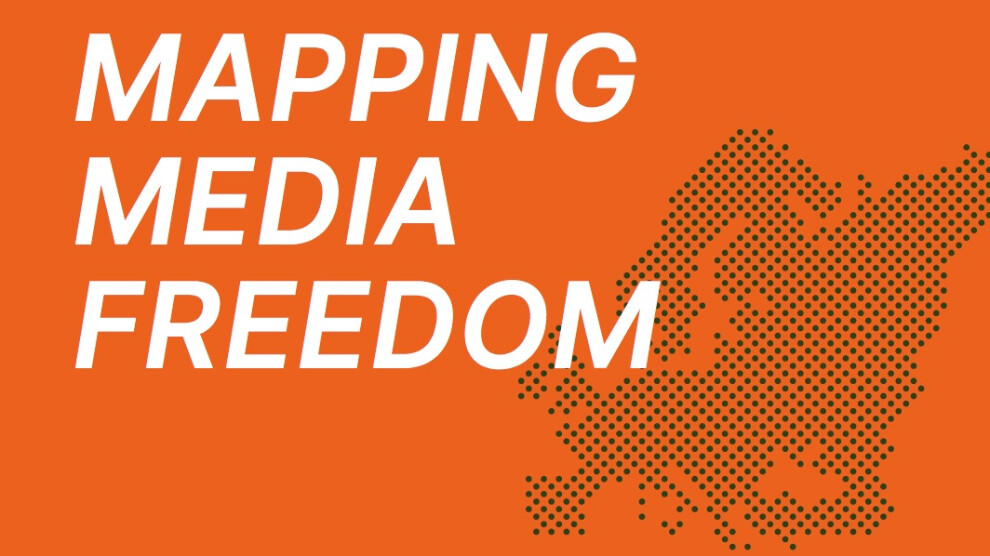Media Freedom Rapid Response exposes legal persecution of journalists in Turkey
The Media Freedom Rapid Response has published its first semi-annual report of the year.
The Media Freedom Rapid Response has published its first semi-annual report of the year.

The Media Freedom Rapid Response (MFRR), a group monitoring violations of press freedom in European Union member states and candidate countries, has published its first semi-annual report of the year.
The report focuses on several issues, including the Ukraine war, the European Commission's recommendations for the safety of journalists, online security, and surveillance and framing of journalists.
It also includes analyses of press freedom in 10 selected countries: Türkiye, Germany, France, Serbia, Greece, Poland, Spain, Malta, Belgium and the Netherlands.
Journalists in prison
The MFRR recorded 71 press freedom violations in Turkey in the first half of the year, which involved 171 attacked persons or media entities.
There were 45 journalists in Türkiye's prisons at the time of the publishing of the report, it said.
"Turkey's full scale attack on press freedom continued as systemic repression of independent media escalated in the first six months of 2022," says the report.
"Increasing criminal charges and arbitrary arrests make it difficult to report critically on the ruling Justice and Development Party (AKP), while physical assaults on journalists by police and private individuals created a hostile and dangerous work environment."
The report also notes the killing of Güngör Arslan, the owner and managing editor of the local Kocaeli Ses newspaper, who was shot and killed in front of his office in Kocaeli, northwest Türkiye. "He wrote articles against the former Grey Wolves Kocaeli Provincial President and lawyer, Ersin Kurt, and according to the prosecutor's claim, Kurt ordered Arslan's murder to silence him."
Legal persecution
The most common threat faced by the journalists in Türkiye was legal persecution, the report says, citing the cases it recorded.
"The most pervasive threat to journalism continued to be legal persecution, which was related to over half (59.2 percent) of the cases recorded on MapMF.
"Arbitrary detentions and police raids on news outlet offices and journalists' homes made up nearly one third (31.0 percent) of the cases.
"Several journalists and photojournalists were detained while covering protests such as the Istanbul Pride and the mass demonstration arranged in commemoration of the Gezi Park protests.
"In early June, in one of the largest single-day crackdowns on Turkey's independent media, at least 23 journalists of pro-Kurdish media were detained and 16 of them are still imprisoned for allegedly 'spreading terrorist propaganda.
"The most common types of criminal charges were linked to alleged dissemination of terrorist propaganda or membership of a terrorist organisation, which was the case for photojournalist Abdurrahman Gök, who was found guilty on a terrorism charge for recording the police killing of a Kurdish man in 2017.
"Freelance journalist Nazan Sala was sentenced to one year and three months imprisonment in January on terrorism charges for reporting on the alleged torture of two citizens by Turkish soldiers.
In June, the Turkish government demanded that Sweden extradite two dissident journalists amid Sweden and Finland's NATO membership negotiations."
Police violence
"Journalists in Turkey were subjected to physical violence by police, especially while covering protests. One in three cases (33.8%) recorded on MapMF stated police or state security as the source of the press freedom violation.
"In April, at least twelve journalists were physically assaulted or faced police aggression while covering a press statement commemorating the 1977 1 May Massacre.
"Journalists also received threats of physical violence and death threats online, as well as sexist harassment. Turkey's government-controlled media regulator, the Radio and Television Supreme Council (RTÜK), continued sanctioning media outlets and blocking access to their websites in a discriminatory manner."